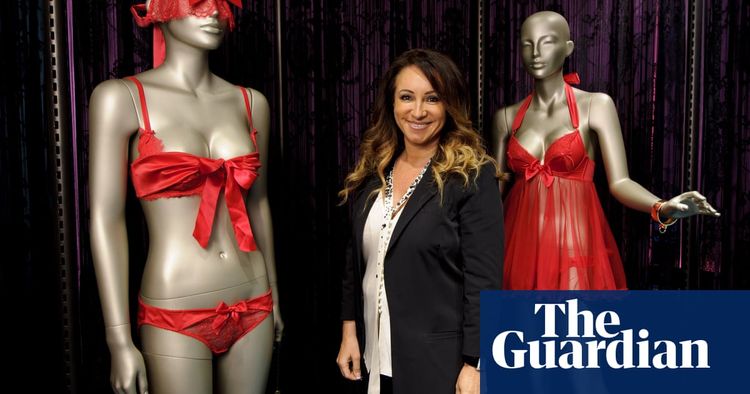Ann Summers, Jacqueline Gold’s risqué venture, transformed the British retail landscape with pride.

Jacqueline Gold came into Ann Summers with the intention of making some changes. Her father, David, and her uncle, Ralph Gold, had already owned the company for ten years. They had transformed it from a sex shop to a "lingerie boutique," but it was still selling the same sex toys and other adult-themed products. The shop went from being avoided by women to a shop that women felt comfortable shopping in.
The passing of Jacqueline Gold at the age of 62 had a profound impact that extended beyond her stores and operation. In the 80s, the British culture was accustomed to seeing women in their lingerie, but it was mainly to market various products to men. Creating a shop that presented erotic images and frontages geared towards women was a groundbreaking concept and had connotations of humor, sarcasm, and sexual innuendos. British culture derived a particular humor from sex, where whoever revealed their sexual identity became the target of ridicule and the subject of a tasteless joke. Therefore, going to Ann Summers was not without consequences for women, and Gold sought to combat this issue through two means.
Initially, she fully embraced the explicitness and aimed to display it without shame. However, this caused a significant amount of disagreement, with certain advertisements being perceived as too raunchy for public spaces by the Advertising Standards Authority. The objections extended beyond just the content being too vulgar, as the usage of a blowup doll named Mustafa Shag was seen as an unwarranted provocation for certain Muslim groups.
There was no effort to make the displays look subtle or elegant, and during the 80s and 90s, they were very out of place. Normal adult stores don't usually receive prime commercial locations, and mainstream underwear sellers like M&S definitely didn't showcase full-on red-lace stockings in their displays. So Ann Summers was this small oasis of eroticism, wedged between a Paperchase and a Costa. It allowed a peek into a different realm where women dressed up in kinky versions of typical jobs, such as a sexy nurse or a latex police officer, for a night out.
After realizing that many women wanted to buy their products but were hesitant to enter the physical stores, Gold developed a party plan similar to Tupperware parties. These parties featured sex toys, lingerie, and often included prosecco or Babycham. This idea was an instant hit, with the UK hosting 4,000 parties per week by 2003. Although the parties eventually declined due to the internet and the difficulty of generating income, the brand benefitted greatly from the online presence. In fact, the year after they went online, they sold one million units of their flagship product, the Rampant Rabbit vibrator, in the UK alone.
The evolution of vibrators from a taboo subject to a popular gift between women is often attributed to the impact of Sex and the City. Particularly, an episode called The Turtle and the Hare where Miranda lends Charlotte her Rabbit. However, in the United Kingdom, the significant influence came from countless women discussing sex toys in a social setting for over 20 years. Maybe, it all began with second-wave feminist consciousness-raising groups, but it seems they did not prioritize pleasure in the same manner.

























































